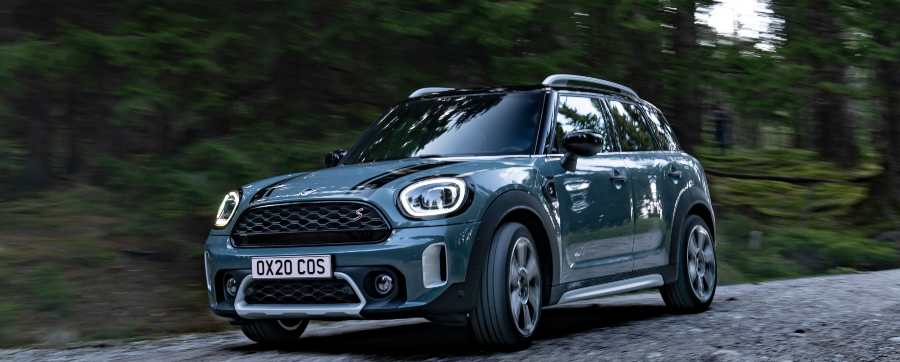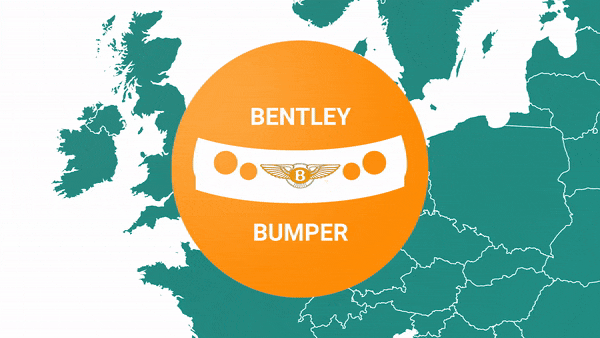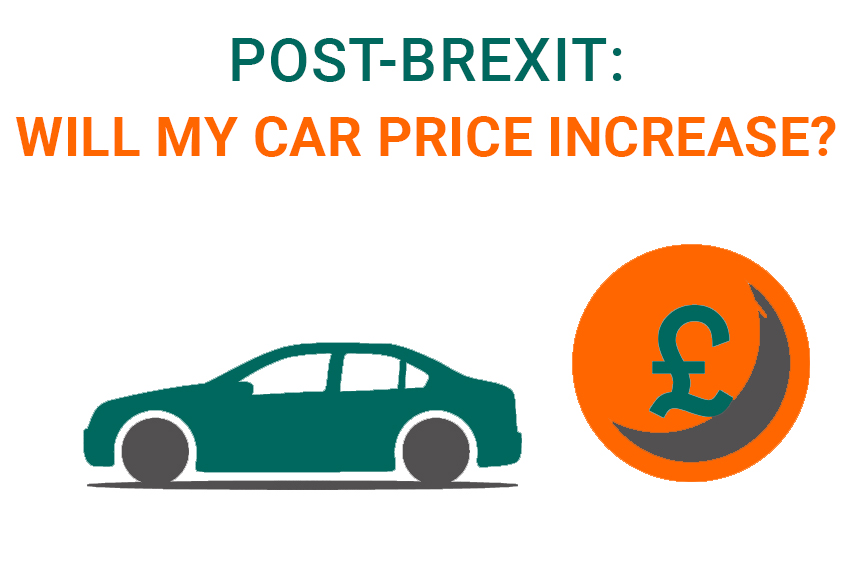The Brexit vote took place so long ago now (June 23 2016) and during the time between then and now so much has happened: We had multiple extensions as the UK government and EU parliament officials attempted to come to an agreement that suited both parties; We had a general election, two changes in party leadership, two Prime Ministers and we are still battling the effects of a global pandemic that has affected every single industry, including vehicle manufacture and sales.
So, now that a deal has finally been agreed and the paperwork has been approved by the UK goverment, though the EU parliament is not holding its final oversight committee hearing until the very end of February 2021 – so the agreement is currently provisional.
After the official Brexit transition period commenced, the UK government started negotiating with the EU (which is made up of 26 countries – known as the Schengen area) as, the EU had stated that they would not negotiate any new agreements with the UK until it was no longer a member of the EU. These negotiations were finalising trade agreements and security co-operation (extradition, storage and safety of personal data, general law enforcement).
Though obviously, security co-operation is incredibly important. The biggest issue that will affect the motor industry in the UK is the trade agreement.
So, now that a trade agreement has been reached – though it was incredibly last minute, with negotiations only having been finalised (in draft format) on December 24th 2020. The biggest issue affecting the negotiations was fishing!
What is our trade agreement with the EU?
The trade agreement has been the biggest bone of contention when it comes to the terms of the Brexit agreement. While we have been trying to negotiate with the EU, ministers and ambassadors have been speaking with other countries to organise agreements that we were part of automatically when part of the EU.
All of this meant, for car manufacturers, brokers, dealerships and the customer, that ignoring the traditional price increases due to inflation and the introduction of newer models, car prices were relatively static.
So far, we have arranged post-Brexit deals with 31 countries including Switzerland, Japan and South Korea, have provisional or bridging agreements with a further 29 countries, have signed trade agreements with Mexico, Canada and Jordan that will come into effect early 2021, are still in talks with 6 countries including Albania and Algeria and have an MRA (Mutual Recognition Agreement) with Australia, New Zealand and the United States (as of 13/01/2021).
As part of the European Union, we had a free trade agreement – which continued during the transition period. The free trade agreement meant that we pay no additional taxes to import and export goods with EU member countries and countries that the EU has a trade agreement with.
During the negotiation process, we encountered several sticking points (as previously mentioned) including access to fishing waters and the so-called ‘level playing field’ rules that cover workers’ rights, competition and environmental policy.
There were many moments were it looked as though we would end up leaving the EU without any kind of trade agreement in place, which would have meant we would have seen an increase in the cost of our imported goods according to World Trade Organisation tariffs, which, on vehicles would have been 10% (4.5% for parts).
Want to find out what cars we have available before they appear on the website? Simply fill in the box below to sign up to our regular special offer emails
What are the WTO tariffs?
The World Trade Organization has tariffs for every possible item that is imported and exported, including items such as cheeses from Italy which would incur a 35% tariff and stationery (including envelopes, paper, journals and notebooks) which are allotted a 5% tariff.
If we were unable to negotiate an agreement with the member states of the European Union or other countries that have a trade agreement with the EU, then complete vehicles imported into the UK would be subject to a further 10% tax. This tax would, unavoidably, be passed on to the customer, therefore increasing car prices.
How will Brexit affect me buying a new car?
The good news to come out of the recently ratified (in the UK) agreement with the EU is that there will be no additional costs incurred to import vehicles into the country.
The trade agreement states: There will be no taxes on goods (tariffs) or limits on the amount that can be traded (quotas) between the UK and the EU from 1 January
Obviously, at the point of entry into the country, just like passport control, more checks will need to be carried out and there will be new paperwork to complete. However, this is something that companies were being made aware of in 2020, so preparations were made. It is possible that this introduction of new documentation and a delay at port could impact car prices, but it would not be equal to the 10% initially anticipated when no deal was a possibility.
Of course, in October 2018, when Europe’s biggest carmakers gathered at the Paris Motor Show there was clear disquiet. Brexit was not a popular topic and something that they made no secret about dreading,sure that the motor industry would be hit quite badly. This dread continued into 2020, with the Society for Motor Manufacturers and Traders (SMMT) continuing to petition the government to consider the motor industry and the detrimental effect that a no-deal exit would have on it.
Companies were preparing for the worst in 2020 (having already been hit by forced closures due to COVID-19) and readying for car prices to increase, job losses and factory closures.
It wouldn’t have affected me, my car is built in the UK
Granted, we’ve had good news now, but if you were thinking you would have been excluded from price increases because you’re going to get a MINI or a Toyota Corolla, both of which are built in the UK, then you’d have been wrong.
“But my vehicle is made at a plant in Oxford,” you may say (especially if you’re looking at purchasing a brand new MINI). But have you actually ever given any thought to where the components for your MINI are produced?

A considerable number of vehicles that are manufactured in the UK are produced using components that are made in countries outside the UK and transported on a daily basis – using the Just-in-Time (JiT) system (if you would like to find out more about this, we have put together a detailed article about the JiT process).
Had we been unable to agree a trade deal then components from the EU used in the manufacture and repair of vehicles would have been subject to a WTO tariff of 4.5%. Though this is obviously lower than the 10% tariff on completed imported vehicles, it would have had an impact on the cost of vehicles produced in the UK, and potentially on vehicles requiring repair (if the part had to be imported from outside the UK). This would, in turn, have increased car prices via dealerships and brokers.
We have put together a graphic that shows you the journey that a bumper used in the manufacture of the popular Bentley Bentayga takes before it’s placed on the luxury vehicle as the final part of the construction process in Crewe.

Cars and car components are the UK’s second-largest export to EU and non-EU countries. In 2019, the value of UK vehicle exports was £31.6 billion with 80.8% of all vehicles manufactured for export, 54.8% of those were sent to EU member states. Just over 2.3 million new cars were registered in the UK. Despite 247,000 of these vehicles being sold to UK consumers.
What plans are car manufacturers making for a post-Brexit market?
In 2018, BMW warned that they were considering moving production of the MINI – currently produced in Cowley, Oxford, to the Netherlands should we be unable to come to a deal with Europe. With a deal having now been made and reassurances that car prices for imports and exports are not going to be negatively affected (increased through the WTO tariff) a decision has yet to be announced as to long term plans.
At the same time, Johan Van Zyl, the CEO of Toyota Europe, mentioned that the jobs of the 2,600 people employed at their plant in Derbyshire face an uncertain future due to the cost increases the company may incur if WTO tariffs were introduced. Van Zyl stated that he believes the company would struggle to remain competitive in the market. The possibility of being unable to sell their vehicles duty-free in the EU market would harm future plans for their UK sites.
What should I do next?
Though a trade agreement has now been made with the EU, it is still to be finalised (February 28, 2021) by the European Parliament. Until that time we are benefitting from the arrangement that was agreed, so there will be no increase in cost for importing goods.
It is worth noting that the UK (and globally) there is a shortage of vehicles available due, in part, to the global factory closures and required reduction of working staff due to social distancing requirements, so if you are thinking of getting a vehicle (even if it is factory order), now is the time to place your order.

